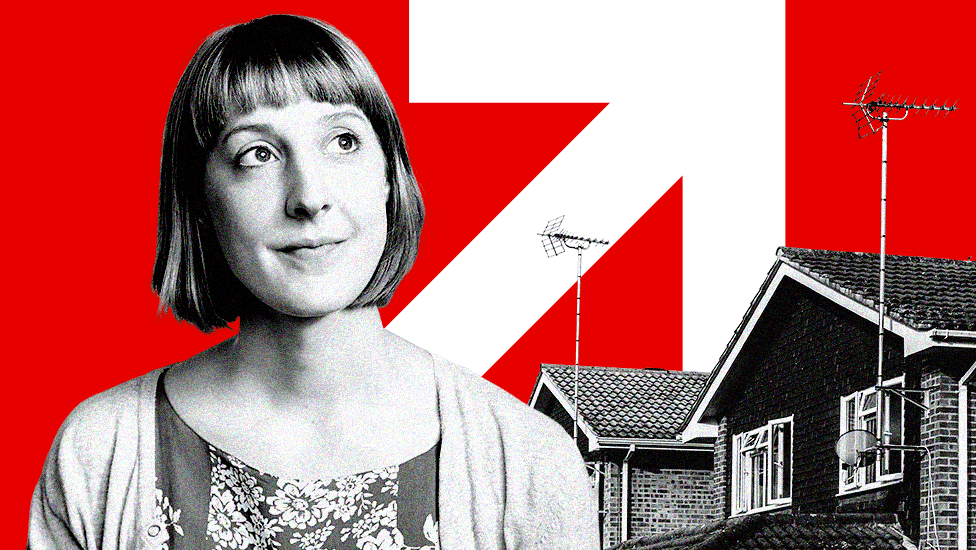Mortgage rates: Five ways to save money
- Published

While interest rates may have peaked at 5.25%, holding steady at that level since August, it may be some time before they start to fall.
That means for the 1.6 million UK homeowners whose cheap fixed rate deals are due to expire by the end of December 2024, higher costs will be inevitable when they come to remortgage.
The more than 1.4 million people on tracker and variable rate deals who have had to absorb immediate increases to their monthly repayments will be hoping for a drop in rates sooner rather than later.
With the help of some of the UK's leading mortgage experts, here are a few tips on coping with rising costs.
1. Overpay now if possible
If you still have some time on a low fixed-rate deal, your mortgage could work harder for you now.
"Most lenders will allow up to 10% overpayments per annum, but make sure you keep some cash as a rainy day fund as it won't be easily accessible once used to reduce the mortgage," says David Hollingworth from mortgage brokers London & Country.
Putting money in a savings account can build up and also earn interest to help to pay down some of the mortgage ahead of fixing a new deal.
Worried about rising mortgage payments? The BBC's Lora Jones tells you what you can do, in a minute
2. Switch to interest-only
If you have an interest-only mortgage it means you are only paying the interest on the amount borrowed, and you are not paying down the size of the debt.
Moving to an interest-only mortgage can keep your monthly payments affordable, says Richard Dana, chief executive of digital mortgage broker Tembo.
"However, it's best to use this as a short-term solution, otherwise you will have to pay your remaining mortgage balance at the end of your mortgage term," he adds.
Your income and the amount of equity you hold in the property will determine your eligibility.

3. Downsize
This is possibly not a realistic option for a growing family, or for the owners of a small flat.
But for older mortgage customers whose children have flown the nest, selling up and buying a smaller property could reduce the mortgage size - or potentially pay it off entirely.
"Consumers looking to re-mortgage may find it difficult to afford higher interest rates, so seeking independent advice is essential to consider every option available to them, such as downsizing," says Rachel Springall from financial data firm Moneyfacts.
4. Extend the mortgage term
The typical mortgage term is 25 years, but 30 and even 40-year terms are now available.
"Extending the term can help reduce the monthly payment but can cost tens of thousands of pounds more in interest over the life of the mortgage," says David Hollingworth.
"Make sure that you regularly review whether you could cut the term back again as your circumstances change."

5. Make money out of your property
From listing with a short-term letting site like AirBnB, renting out your parking space with an app like Just Park, or taking in a lodger or overseas student, there are several options to make a bit of cash.
"Under the government's rent-a-room scheme you will get a tax free allowance of £7,500 per year for income generated from your main home too," says Richard Dana.

How will the latest interest rate rise affect you? You can share your experiences by emailing haveyoursay@bbc.co.uk, external.
Please include a contact number if you are willing to speak to a BBC journalist. You can also get in touch in the following ways:
WhatsApp: +44 7756 165803
Tweet: @BBC_HaveYourSay, external
Please read our terms & conditions and privacy policy
If you are reading this page and can't see the form you will need to visit the mobile version of the BBC website to submit your question or comment or you can email us at HaveYourSay@bbc.co.uk, external. Please include your name, age and location with any submission.
Related topics
- Published5 January 2024

- Published3 January 2024

- Published11 December 2023

